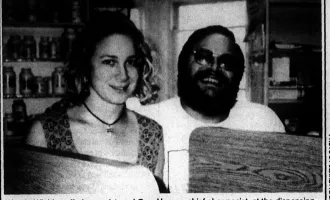Good habits are key to successful career hunting
As a Ph.D. career advisor, I am often asked, “What can I do right now, today, to transition into a non-academic career or find a job?” My answer is to start small—write down a list of careers you’re interested in and a list of people you know are in those careers, then start making connections.
According to Charles Duhigg’s book “The Power of Habit,” we achieve our larger goals through developing key habits or routine behaviors.
For example, you may have the goal of running a marathon. To do this, you develop smaller goals—create a weekly training session and schedule specific times to train. Small successes increase your abilities and confidence, and set you up to believe bigger achievements are possible.
So, what behaviors can graduate students or postdocs implement to succeed now?
• Plan—Think about what you want to achieve.
• Write it down—This functions as a contract to yourself
• Reflect—Re-assess and revise your plan as needed.
Plan
Several PhD-focused research studies have shown that structured planning of your career goals increases productivity and happiness. Planning takes prudence; determining which activities are necessary to achieve your goal versus which are expendable. For example, to explore a career in science writing, you could break up the activity into tasks such as “read articles”, “check out a book about science writing”, and “find alumni from the Graduate Division Career Alumni Network to ask about science writing”.
This type of step-wise planning is more manageable than, “figure out what science writers do”. Planning your career exploration or job search in small, defined tasks is a behavior you can implement today to achieve success. When you automatically start thinking about your projects and goals in achievable parts, then you’ve implemented habit #1.
Write it down
It helps to have a separate “career notebook”, planner or online calendar, where you can write down your specific, time-bound goals, and progress towards achieving them. Physically writing that you will contact your colleague to discuss their new career on Friday by 5pm helps you visualize your goal and plan your week, so you make time for the call. The act of noting that this goal is important to you, and that you will accomplish it by the end of the week works like a contract. It serves as a firm reminder that you made a commitment. When you are consistently writing down your well-thought out plan each week, you’ve implemented habit #2.
Reflect & Revise
As you develop and write down your career plan, one common misstep is over-ambition; we promise ourselves we’ll do too much, and then get discouraged when we don’t meet those goals. For example, setting a goal of six informational interviews in a month is a lofty goal, and even if your work schedule only allows you to conduct one, you’ve still made significant progress.
Reflect on what factors contributed or prevented you from completing your goals. Continually revise your plan based on what is feasible. This will set you up for a pattern of small achievements, and build your confidence that your larger goals are attainable. Also, share your plan and reflections with a trusted colleague or mentor. Their perspective will keep you accountable and help you determine if your goals are reasonable. When you’re regularly taking the time to reflect on how to accomplish your plan, you’ve implemented habit #3.
NIH supports you
The national attitude towards career development during graduate school and postdoctoral training is changing. At this point in our history, the federal government is encouraging graduate students and postdoctoral scholars to engage in career development and professional training. So go ahead, dedicate time to prepare for your academic or non-academic science career.
Tools and resource you can use
Take advantage of several online resources to help you plan your research and career goals. One specific tool we recommend is myIDP by ScienceCareers.org. This user-friendly online tool helps you with process of implementing your habits. The tool has separate sections to make career and research plans, and write down your specific goals. myIDP can even send reminders via email so you can start to explore career options and develop professional skills today.
Want more help? Make an appointment with an advisor at the Office of Career and Professional Development, at 476.4986. We invite you to continue the conversation with us about moving your plan forward, step by step.

